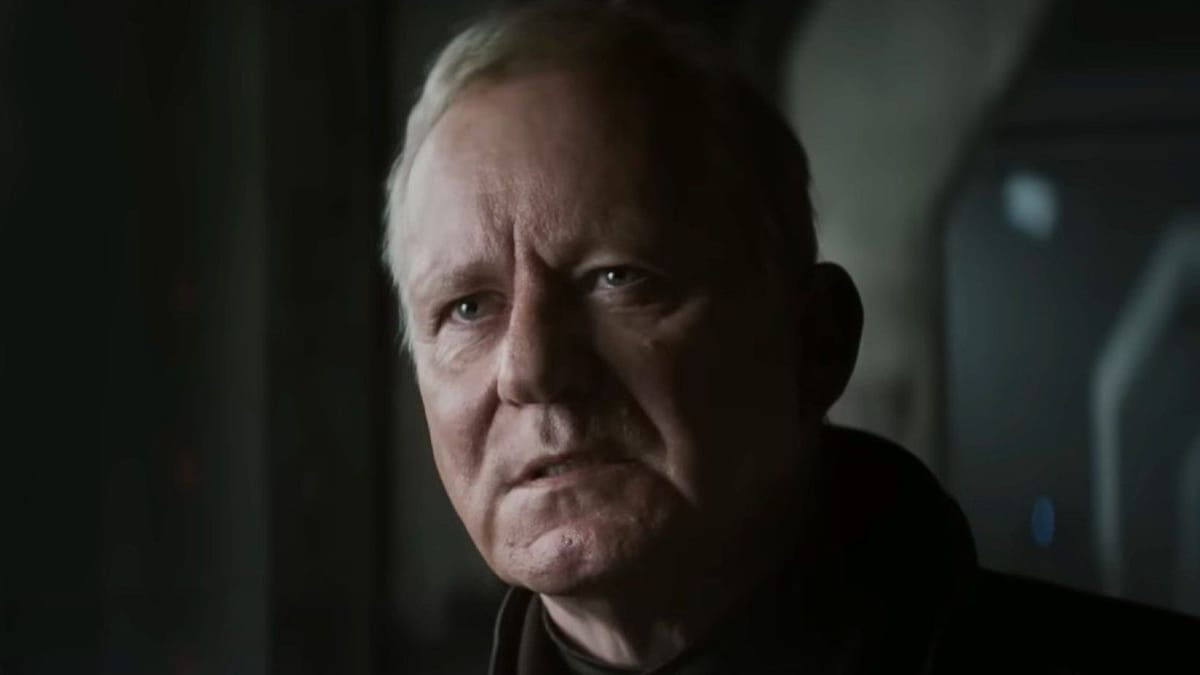Andor: Luthen's Legendary Monologue
The stirring speech encapsulates the qualities that make Andor stand out from other Star Wars projects, and speaks to the brutal reality that lies behind the myths of rebellion.

Among the glut of nostalgia bait that currently constitutes the Star Wars franchise, Andor stands out. The series, which returns next week for its second and final season, is not so much a Star Wars show as it is a prestige drama that happens to take place within the Star Wars universe. It avoids like the plague the easter eggs and franchise tie-ins which Disney Star Wars often subsists on. It features no lightsabers, only a couple brief space battles, and a heavy restraint on strange alien creatures. Its only returning characters outside of Cassian himself are a couple scenes of Saw Gerrera, who had a small role in Rogue One, and Mon Mothma, who previously had essentially existed only as a trivia answer. What is perhaps most indicative of the difference between Andor and the behemoth franchise it belongs to is what the show relies on instead: its spoken words. Star Wars is a franchise with more than a handful of iconic lines, but it almost never relies on dialogue itself to maintain interest. It is a series based in spectacle, thrilling fights and sweeping scores, and its dialogue has always lagged behind that spectacle as a rarely emphasized weak link. In every iteration of the series there are mocked points where shoddy dialogue comes to the fore (Taschi station, sand, they fly now). But Andor is built around its sharp dialogue; its most interesting scenes are usually just of people talking to each other. Even more prominent than the show’s emphasis on dialogue is its emphasis on monologue. There are a handful of speeches that form the centerpiece of the show and constitute its most memorable scenes. And among this group of monologues, there is one I have returned to again and again in the long break between seasons, that encapsulates more than any other scene what makes Andor special within its franchise: Luthen Rael’s monologue at the end of Episode 10.
For less than a dollar a day, unlock full access to our site and support independent creative journalism. Your membership helps us continue telling the stories that matter. Try it free now for 7 days.
Luthen’s monologue is one of a collection of four within the season’s final three episodes that constitute its main batch of monologues. The others – Kino Loy’s message over the intercom to the Narkina 5 prisoners earlier in Episode 10, Nemik’s manifesto delivered in voiceover in the finale, and Maarva’s posthumous address to the citizens of Ferrix in the finale driving them to riot – are straightforwardly inspirational speeches. They opine about the nature of oppression and the need to rise up and reclaim one’s freedom. Kino’s and Maarva’s monologues are both given to large crowds, literally rousing them into drastic acts of rebellion. These are monologues designed as rallying cries, meant to stir courage and ignite a revolution. Luthen’s monologue is different. It occurs not in public but deep in the underbelly of Coruscant, hundreds of stories below its globe-spanning city. It is not a broad statement of the principles of rebellion or a rousing call to action, but a deeply personal account of the costs such a rebellion incurs. In a way, the difference between the show’s other monologues and this one is a microcosm of the difference between the main Star Wars series and this show: between the simple myth of rebellion that becomes widely spread and the complicated, cruel reality that lies underneath that myth.




